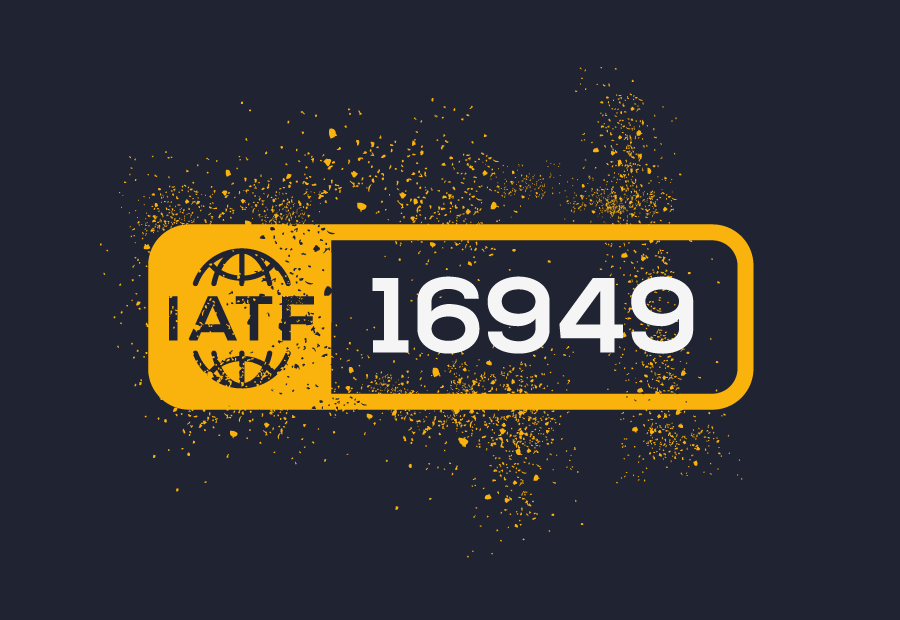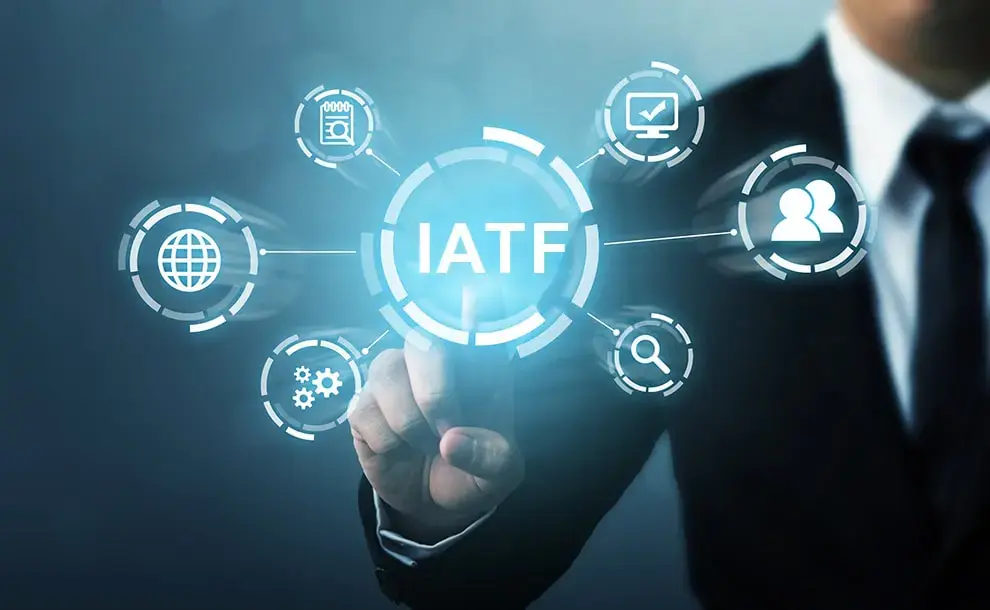40 Years Ago without Standards…
40 years ago one could open a Consumer Reports annual car buyer’s guide and see black dots by almost all American-made automobiles that were older than two years old. The black dots indicated major problems with the respective parts of those automobiles. Very few were recommended for purchase new and even fewer for purchase as used cars. Despite their desire to “buy American”, many Americans opted to purchase imported vehicles which had red dots indicating fewer problems over time.
The tables have changed considerably since that time, in part due to quality management standards among automotive manufacturers. Not only the vehicles themselves, but makers of automobile parts are also complying with standards. Despite resistance by some manufacturers citing higher costs and red tape, standards have resulted in higher quality automobiles, less manufacturing waste, safer working conditions, improved fuel efficiency, and many more positive outcomes. The global industry standard benefits automotive customers worldwide.
What is the IATF 16949 Standard

IATF 16949 is a standard that provides a framework for implementing a Quality Management System (QMS) in the automotive industry. Designed for use in conjunction with ISO 9001:2015, it contains supplemental requirements specific to the automotive industry rather than being a standalone QMS. While the automotive sector has more than one type of quality management system, IATF 16949 ensures:
- Consistent production of high-quality automotive products and services
- Reduction of waste, defects, and errors.
It covers a wide range of processes and functions in the auto industry to help deliver products of high quality that meet customers’ needs. The standard outlines best practices for designing, developing, manufacturing, installing, and servicing automotive products. Both internal and external IATF 16949 audits are conducted to ensure compliance and achieve certification. Compliance with the standard is a driver for continuous improvement.
How was IATF 16949 Developed?
IATF 16949 was developed by members of the International Automotive Task Force (IATF) and has been in use for over 20 years. It sets out the requirements that organizations must adhere to in order to produce safe, quality automotive products.
IATF created and now operates the global technical specification requirements and QMS standard for the automotive industry, IATF 16949: 2016. IATF has five key offices, which are located in Germany, France, Italy, the U.K., and in the U.S. in Southfield, Michigan.
IATF 16949 Benefits to your Organization

While it is mandatory to adopt the IATF 16949 quality management standard for both the automotive industry’s manufacturers and automotive-related product suppliers, the red tape is well worth the effort in its benefits to your organization.
By implementing a Quality Management System (QMS) in accordance with IATF’s standards, organizations can ensure that their products meet the exacting demands of the international automotive market and meet customer specifications. Furthermore, compliance with the standard will help organizations reduce supply chain waste and defects, improve efficiency and safety, and increase customer satisfaction. Adopting the standard seamlessly integrates with other management systems and enables organizations to optimize their production processes and track the performance of their QMS over time.
Meet Customer Requirements
By ensuring customer requirements are met, IATF 16949 can help automotive organizations maintain customer loyalty and retention. With customers demanding high-quality products that meet their needs, adopting the standard sets a high bar for customer service. Additionally, by using industry feedback to evaluate performance and improve product design and quality, organizations can ensure customer satisfaction remains at a high level.
Reduce Supply Chain Waste

The standard helps reduce supply chain waste by ensuring that all processes in the organization are standardized and streamlined. This, in turn, reduces the risk of errors and failure to meet customer specifications. It also helps to ensure that suppliers are held accountable and are delivering materials according to quality standards emphasizing defect prevention. By adhering to IATF 16949’s stringent requirements, organizations can reduce the amount of waste generated during production, reduce the risk of defective goods, and reduce costs associated with materials management. Ultimately, IATF 16949 helps organizations reduce supply chain waste and enhance efficiency.
Seamlessly Integrate with ISO 9001
IATF 16949 seamlessly integrates with ISO 9001 and other Quality Management systems, allowing organizations to take advantage of the strengths of multiple standards. This helps automotive organizations meet customer requirements as well as efficiently manage global supplier networks. IATF 16949 can be used in conjunction with any other applicable standard, such as ISO 9001.
Win More Business
Finally, by becoming certified in IATF 16949, organizations can demonstrate their commitment to quality and gain a competitive edge by complying with this global industry standard. This can result in more business opportunities and increased sales. IATF 16949 is essential for any organization involved in the automotive industry wishing to ensure that it produces quality products of a consistently high standard.
IATF 16949 Training Opportunities
What will I learn in an IATF 16949 Awareness Training?
An IATF 16949 Awareness Training is a beginner course designed to provide an introduction and understanding of the IATF Quality Management System and its requirements. The training covers topics such as principles of quality management, customer value, process control, root cause analysis, corrective action/preventive action (CAPA), nonconformities/audit findings, and continual improvement. Participants will also learn a step-by-step approach to the implementation of IATF 16949 in their organization.
What will I learn in an IATF 16949 Internal Auditor Training?
An IATF 16949 Internal Auditor Training is an advanced course designed to prepare individuals for the tasks of performing internal audits in accordance with IATF 16949. The training covers topics such as the principles of internal auditing, understanding customer requirements, audit planning and preparation, conducting an audit, and preparing audit reports.
Is there a certificate for IATF 16949 training?
Yes, upon successful completion of the IATF 16949 Awareness Training or the IATF 16949 Internal Auditor Training, participants will be awarded a certificate indicating they have an understanding of the standard and its requirements. Those who receive the certification can demonstrate their knowledge to current and potential customers, as well as other stakeholders in their organization.
In summary, IATF 16949 is a globally recognized quality management system standard designed to help automotive organizations meet customer requirements and produce high-quality products. The standard provides organizations with the necessary quality management system framework to reduce supply chain waste and win more business. Additionally, there are training opportunities available for individuals wishing to gain an understanding of the standard and its implementation in their business.
EMDS and IATF 16949
Organizations looking to become IATF certified can leverage the expertise of third parties like E&M Design Solutions to meet their goals. EMDS provides training and guidance to organizations wishing to achieve IATF 16949 certification. In addition, we offer both consulting and auditing services that help organizations identify areas for improvement and implement compliance solutions.

